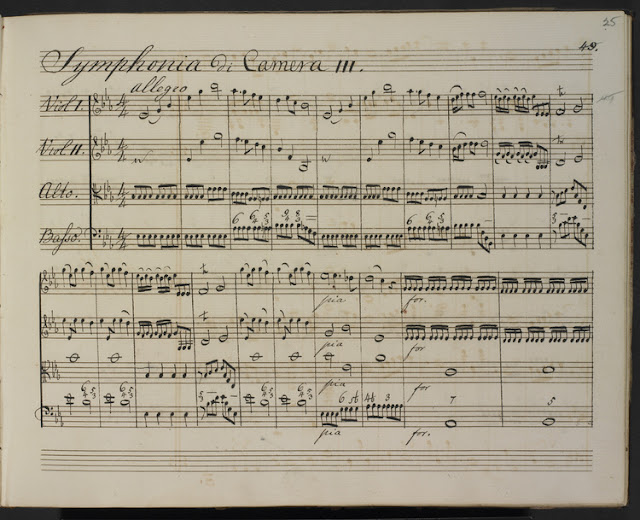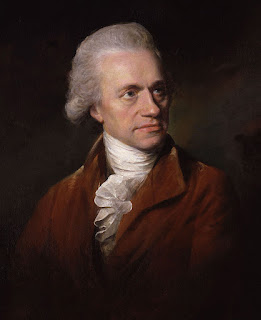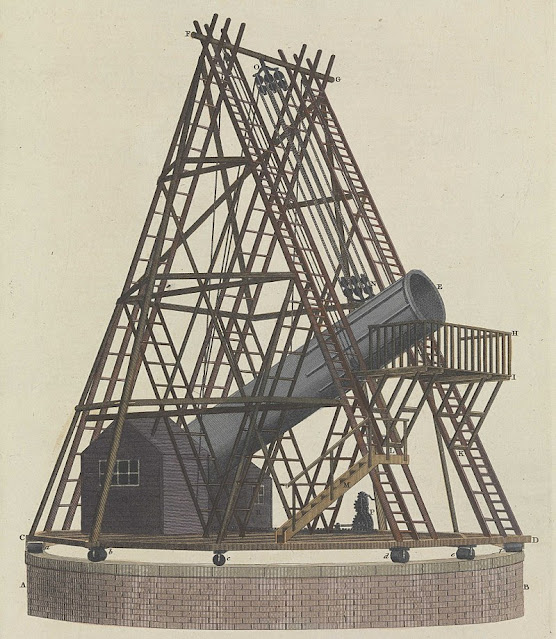 |
| Manuscript of William Herschel's Symphony No. 15 in E-flat major (1762) |
This year is the bi-centenary of the death of Frederick William Herschel (1738-1822), the German-born British composer and astronomer who is best known for his discovery of the planet Uranus in 1781. But Herschel had a parallel career as a musician though few of his compositions have made it into the record catalogue, and now The Dionysus Ensemble have recorded two of his trio sonatas.
 |
| William Herschel by Lemuel Francis Abbott (1785) |
Wilhelm naturalised, learned English, and by 1761 was lead violinist with Charles Avison's orchestra in Newcastle, before moving to Leeds then Halifax (where he was the first organist at the church that is now Halifax Minster). In 1766 he became the organist of the newly built Octagon Chapel in Bath where in 1767 he directed a performance of Handel's Messiah (with Paragon Singers in Bath currently having a project to celebrate these performances, see my article). He was also director of public concerts in Bath and by 1780 he was director of the Bath orchestra. The Octagon Chapel survives (albeit in secular form) and is now a bar and restaurant, The Botanist!
In 1772, his sister Caroline arrived in England to live with him. Whilst she would be soprano soloist in his concerts, she also was a partner in his astronomical studies. With her help and that of his brother Alexander he made his own telescopes, constructing his first large reflecting telescope in 1774 and from then on astronomy seems to have been his principal interest. Caroline would spend the next 50 years aiding her brother and you do wonder whether, like Mendelssohn's sister and Schumann's wife, her contribution has been somewhat minimised.
In 1785, with financial support from King George III, Herschel constructed a 40 foot telescope. The construction of this was a challenge, is was late and over-budget, and it proved cumbersome. Though useful, the images were not as clear as intended and in fact Herschel took the technology to its limits and only with 19th century improvements to the precision engineering of high-quality mirrors would further developments be possible.
 |
| William Herschel's 40 foot Grand Reflecting Telescope |
Herschel's musical output largely dates from the 1760s, including six symphonies, 18 symphonies for small orchestra, over a dozen concertos. Matthias Bamert and the London Mozart Players recorded six of the symphonies in 2003 [available from Amazon] but there is remarkably little else of Herschel's in the catalogue.
Herschel died in 1822 in Slough and was buried at St Laurence's Church, Upton, Slough. Now the Slough based Dionysus Ensemble, has recorded two of Herschel's trio sonatas, transcribing them from the original manuscripts. These are available for streaming [Link Tree] and we hope that the recording spurs others to explore this music.











No comments:
Post a Comment